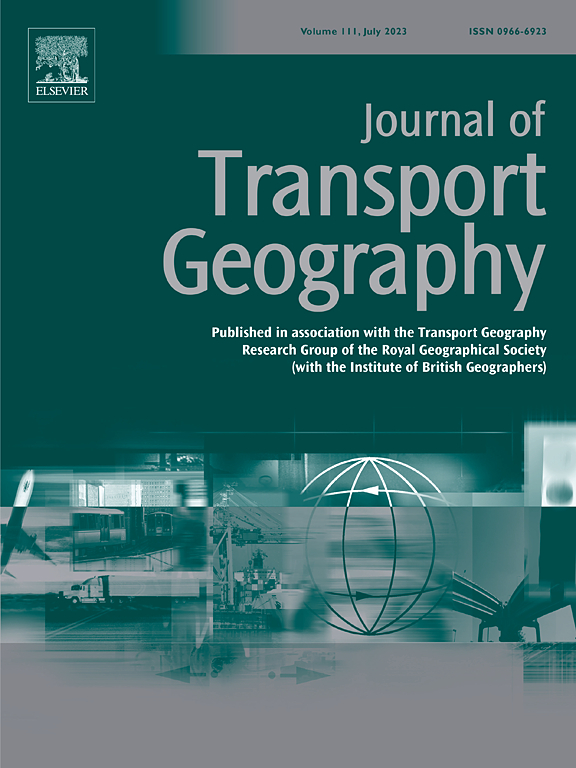主张多于土地:港口城市界面中多方面的土地使用挑战
IF 5.7
2区 工程技术
Q1 ECONOMICS
引用次数: 0
摘要
在城市化密集地区的港区,发展空间的缺乏日益限制了增长的可能性,利益和土地使用主张分歧的利益相关者之间对空间的竞争加剧。本文的目的是通过论证对港口城市界面的更多方面的理解来丰富关于港口城市界面的科学论述,而不仅仅是经济效率的争论,以及这对土地使用冲突如何实现和解决意味着什么。基于定量数据,我们更详细地分析了两个案例研究区域(荷兰鹿特丹港和阿姆斯特丹港)的土地使用冲突特征。此外,我们开发了一个框架,有助于减轻土地使用冲突的影响,并通过对港口愿景和港口当局年度报告的分析进行了定性探讨。研究结果表明,尽管净要求的土地数量尚未超过可用土地数量,但这些利益分歧的累积效应已经超过了可用土地数量,这表明,随着要求的土地数量超过土地数量,争夺空间的斗争即将加剧。本文章由计算机程序翻译,如有差异,请以英文原文为准。
More claims than land: Multi-facetted land use challenges in the port-city interface
Port areas in densely urbanized areas are locations where the lack of development space increasingly limits growth possibilities, and competition for space between stakeholders with diverging interests and land use claims intensifies. The aim of our paper is to enrich the scientific discourse on the port-city interface by arguing for a more multi-facetted understanding of the port-city interface beyond arguments of economic efficiency, and what this implies for how land use conflicts materialize and are dissolved. Based on quantitative data we have analyzed the characteristics of the land use conflicts in two case study areas (the ports of Rotterdam and Amsterdam in the Netherlands) in more detail. Furthermore, we developed a framework that could contribute to mitigating the effects of the land use conflicts, and have qualitatively explored this through an analysis of port visions and annual reports of the port authorities. The findings suggest that, even though the net claims do not yet outnumber the available land, the cumulative effects of these diverging interests do, which suggests that the battle for space is about to intensify as there are more claims than land.
求助全文
通过发布文献求助,成功后即可免费获取论文全文。
去求助
来源期刊

Journal of Transport Geography
Multiple-
CiteScore
11.50
自引率
11.50%
发文量
197
期刊介绍:
A major resurgence has occurred in transport geography in the wake of political and policy changes, huge transport infrastructure projects and responses to urban traffic congestion. The Journal of Transport Geography provides a central focus for developments in this rapidly expanding sub-discipline.
 求助内容:
求助内容: 应助结果提醒方式:
应助结果提醒方式:


